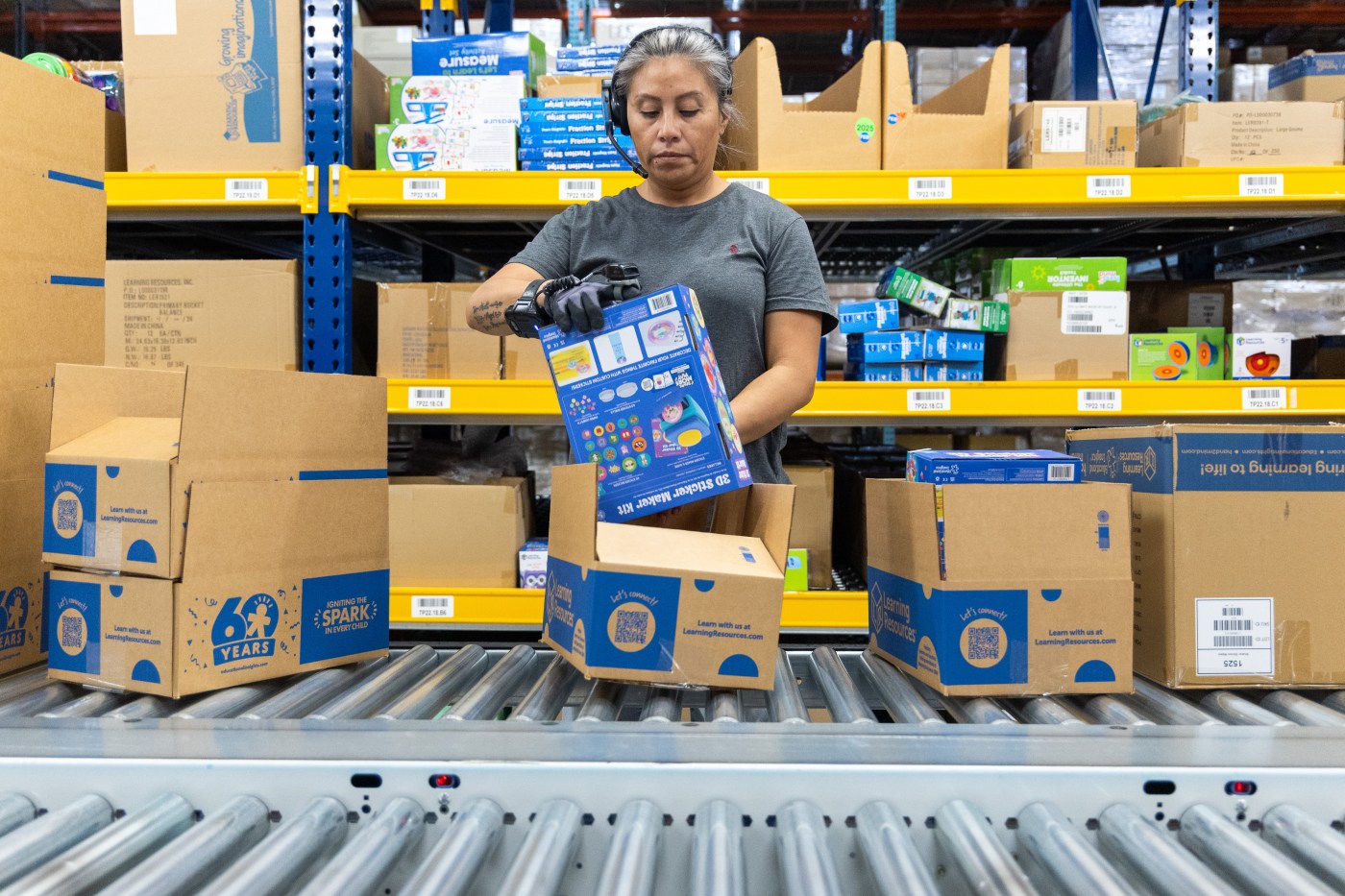A toy manufacturer in Vernon Hills, Illinois, is taking a stand against the tariffs imposed by the Trump administration, challenging their legality in the U.S. Supreme Court. Learning Resources, along with its sister company hand2mind, is facing significant financial strain due to these tariffs, which rose dramatically from approximately 20% to as high as 104% on goods imported from China. CEO Rick Woldenberg, who holds a law degree from the University of Chicago, initiated legal action against the administration, asserting that the tariffs are unlawful.
In May 2023, a federal court ruled in Woldenberg’s favor, stating that the Trump administration improperly applied the International Economic Emergency Powers Act when implementing the tariffs. While this ruling temporarily halted the tariffs, the Trump administration appealed, and the U.S. Supreme Court is set to hear the case on November 5, 2023, consolidating Woldenberg’s lawsuit with others filed by businesses across the country.
Woldenberg expressed his determination to fight the tariffs, emphasizing, “Rather than reshape our company to suit the needs of politicians, we’re trying to assert our rights as citizens so that we can continue to run our business according to our good judgment.” He argues that the tariffs have not only disrupted his business operations but have also failed to achieve their intended goal of boosting domestic manufacturing. According to a report by The Associated Press, as of last month, the U.S. economy had lost 14,000 manufacturing jobs since April.
A study by the JPMorganChase Institute found that the tariffs could impose a direct cost of approximately $82.3 billion on American companies. These costs are often passed on to consumers, leading to higher prices, reduced sales, and potentially fewer job opportunities. Steven Durlauf, an economics professor at the University of Chicago’s Harris School of Public Policy, noted that American firms typically transfer about 80% of tariff-related costs to consumers, which can hinder investment in domestic production.
The impact of tariffs has generated mixed opinions among manufacturers. Mark Denzler, president and CEO of the Illinois Manufacturers’ Association, stated that while some businesses, including Learning Resources, have struggled, others view tariffs selectively as a means to combat unfair competition. Denzler highlighted the challenges businesses face due to the unpredictable tariff environment created by the Trump administration’s shifting policies.
Woldenberg has not laid off any employees but has paused hiring for certain positions. To cope with increased costs, the company raised prices on some products by around 5% and scaled back on planned investments. “The more they charge us in tariffs, the less we have to spend on our people here,” he explained.
Learning Resources has a long history, having started production in China in the 1980s, establishing strong relationships with suppliers. Woldenberg began shifting some operations to Vietnam and India in 2016, but he noted the difficulty of maintaining quality and pricing standards in new markets.
With over 500 employees and exports to more than 100 countries, Woldenberg is committed to continuing his family’s legacy in the toy industry, which began in 1916 with the production of laboratory equipment. The company pivoted to educational toys in the 1960s and has since evolved to offer a wide range of products that support children’s learning.
Woldenberg takes pride in the positive impact his products have on children’s educational journeys. He remains steadfast in his resolve to combat the tariffs, viewing them as a significant threat to his business and the community. “The employees in the community that we live in, and millions of children, have their educational trajectory affected by what we do,” he stated, underscoring his motivation to advocate against these tariffs.
